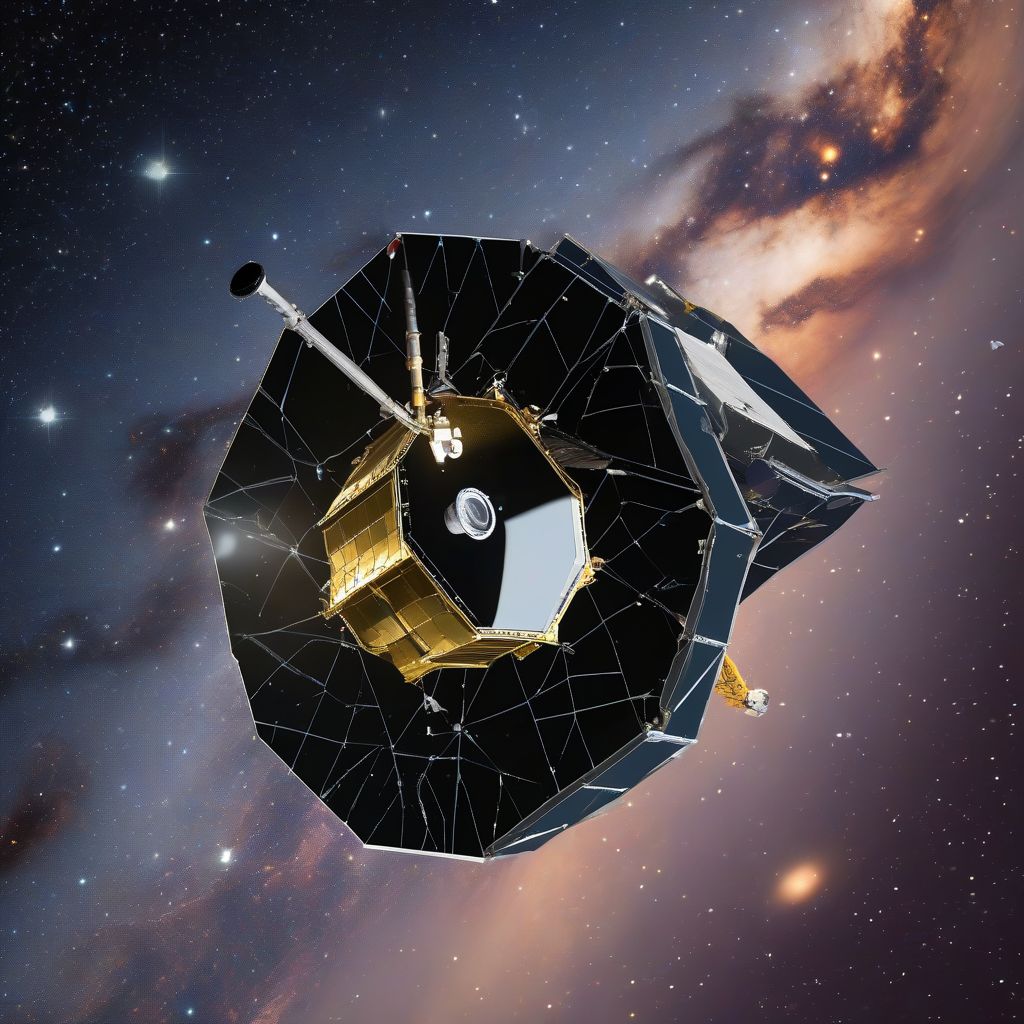Ever gazed at the night sky and wondered about the mysteries of the universe? Space missions, those daring ventures beyond Earth, do more than inspire awe; they are powerful engines driving scientific research and expanding our understanding of the cosmos and our place within it. Let’s delve into how these extraordinary missions advance scientific knowledge across various fields.
Unraveling the Secrets of the Universe: Space Exploration and Fundamental Research
Space missions act as our eyes and ears in the vast expanse of space, allowing us to observe and study celestial objects and phenomena up close. Telescopes like Hubble and James Webb, positioned far above Earth’s atmosphere, provide crystal-clear images of distant galaxies, revealing secrets about the early universe and the life cycle of stars.
Peering into the Cosmic Past
By capturing light that has traveled for billions of years, these space telescopes offer glimpses into the universe’s infancy, helping us comprehend its evolution and the formation of galaxies. These observations provide crucial data for cosmologists studying dark matter, dark energy, and the fundamental forces that govern the universe.
Pushing Technological Boundaries: Innovation Driven by Space Exploration
The challenges of space travel necessitate groundbreaking technological advancements, often having significant implications for life on Earth. The need for lightweight yet durable materials, powerful communication systems, and advanced robotics has resulted in innovations that have revolutionized various industries.
From Space to Your Pocket
Many technologies we take for granted today, such as GPS, compact cameras, and even water filtration systems, have roots in space exploration. The relentless pursuit of innovation in space fuels technological advancements that find their way into our everyday lives.
 Space Telescope in Earth's Orbit
Space Telescope in Earth's Orbit
Understanding Our Own Planet: Earth Sciences from a Cosmic Perspective
Space missions offer a unique vantage point to study our home planet, providing insights into Earth’s climate, atmosphere, and natural resources. Satellites orbiting Earth constantly monitor weather patterns, track pollution levels, and help predict natural disasters, playing a crucial role in protecting our planet.
A Global Perspective on Climate Change
Data from Earth-observing satellites provide invaluable information about climate change, such as rising sea levels, melting glaciers, and deforestation. These observations are crucial for scientists studying the long-term effects of climate change and developing strategies to mitigate its impact.
Searching for Life Beyond Earth: Astrobiology and the Quest for Extraterrestrial Life
One of the most captivating questions driving space exploration is whether life exists beyond Earth. Missions to Mars, Europa, and other celestial bodies search for signs of past or present life, analyzing soil samples, searching for water, and studying the potential habitability of these worlds.
Expanding Our Understanding of Life Itself
The search for extraterrestrial life, even if it yields no definitive answers, expands our understanding of life’s origins and the conditions necessary for its existence. By studying the extreme environments found on other planets and moons, we gain insights into the resilience and adaptability of life itself.
Inspiring Future Generations: The Educational Impact of Space Missions
Space missions captivate our imaginations and inspire future scientists, engineers, and astronauts. The excitement of discovery, the technological marvels, and the human stories behind these missions ignite a passion for STEM fields in young minds, ensuring the continued exploration and understanding of our universe.
Conclusion: The Enduring Legacy of Space Exploration
Space missions are not merely adventures into the unknown; they are essential for advancing scientific knowledge, fostering technological innovation, and inspiring future generations. From unraveling the mysteries of the universe to understanding and protecting our own planet, space exploration plays a vital role in shaping our present and future. By continuing to invest in these extraordinary endeavors, we unlock new discoveries, push the boundaries of human ingenuity, and secure a brighter future for all humankind.
So, the next time you look up at the stars, remember that those distant points of light are not just celestial bodies; they are beacons of scientific inquiry, technological innovation, and human aspiration, reminding us that the quest for knowledge knows no bounds.
Let me know what other intriguing questions you have about the impact of space exploration! Share this article with fellow space enthusiasts and keep the spirit of discovery alive.
[amazon bestseller=”Space Exploration Books”]
